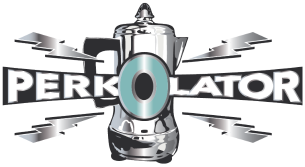Your Cart is Empty
SUBSCRIBE
CAFE
PARTNER
Fair Trade/Organically Grown DR Congo—Women’s Coffee Project Micro-Station
November 03, 2022 2 min read

Fair Trade/Organically Grown DR Congo—Women’s Coffee Project Micro-Station
Fully Washed ∙ Medium Roast
Sugary, sweet and savory with sugarcane juice, green grape, toffee and tart citric acidity.
Grown at 1600-1800 Meters Above Sea Level (MASL)
Each month I get the pleasure of choosing a new single origin coffee to purchase and roast for our Origin Select project. While we always carry a standard selection of single origins representing some of our favorite growing regions, this gives us the opportunity to highlight some exceptional beans on a seasonal basis that we might otherwise have missed out on!

Our Origin Select coffee this month comes from the Lake Kivu region of the Democratic Republic of the Congo (also known as DRC, but not to be confused with the neighboring Republic of the Congo) This is an interesting origin, just barely on the radar of specialty coffee, and it is the first time we have ever featured a Congolese coffee. This month’s fair trade and organically grown microlot is from SOPACDI (Solidarité Paysanne pour la Promotion des Actions Café et Development Intégral) an organization comprising more than 5,600 farmers, roughly 20 percent of whom are women.

These specific offerings come from a group of 105 Pygmy people (including 51 women) who live and farm in the villages of Mishebere and Ruhunde in the Kahele territory. Historically, Pygmy people have faced terrible discrimination and disenfranchisement, including being forced into slavery and/or low-paying work. SOPACDI has started this project to source and keep separate coffee from this group of growers in order to provide them a better income from specialty coffee as well as more financial independence and autonomy. The producers each own an average of 0.5 hectares and deliver coffee in cherry form to the washing station.

Coffee was originally introduced in these areas by European colonists, who owned and operated large plantations using local labor to tend to the fields—a history not unlike that of Kenya, Tanzania, and other colonized African nations. When the DRC achieved independence from Belgium in 1960, the land was broken up in redistribution schemes, with each new farmer getting a very small plot of land.
We hope you will enjoy this new selection in our ongoing Origin Select series of coffees that explores different coffee growing regions, farms, and processes. We roast our Origin Select series in-house, guaranteeing you get the freshest roast possible.
Leave a comment
Comments will be approved before showing up.














